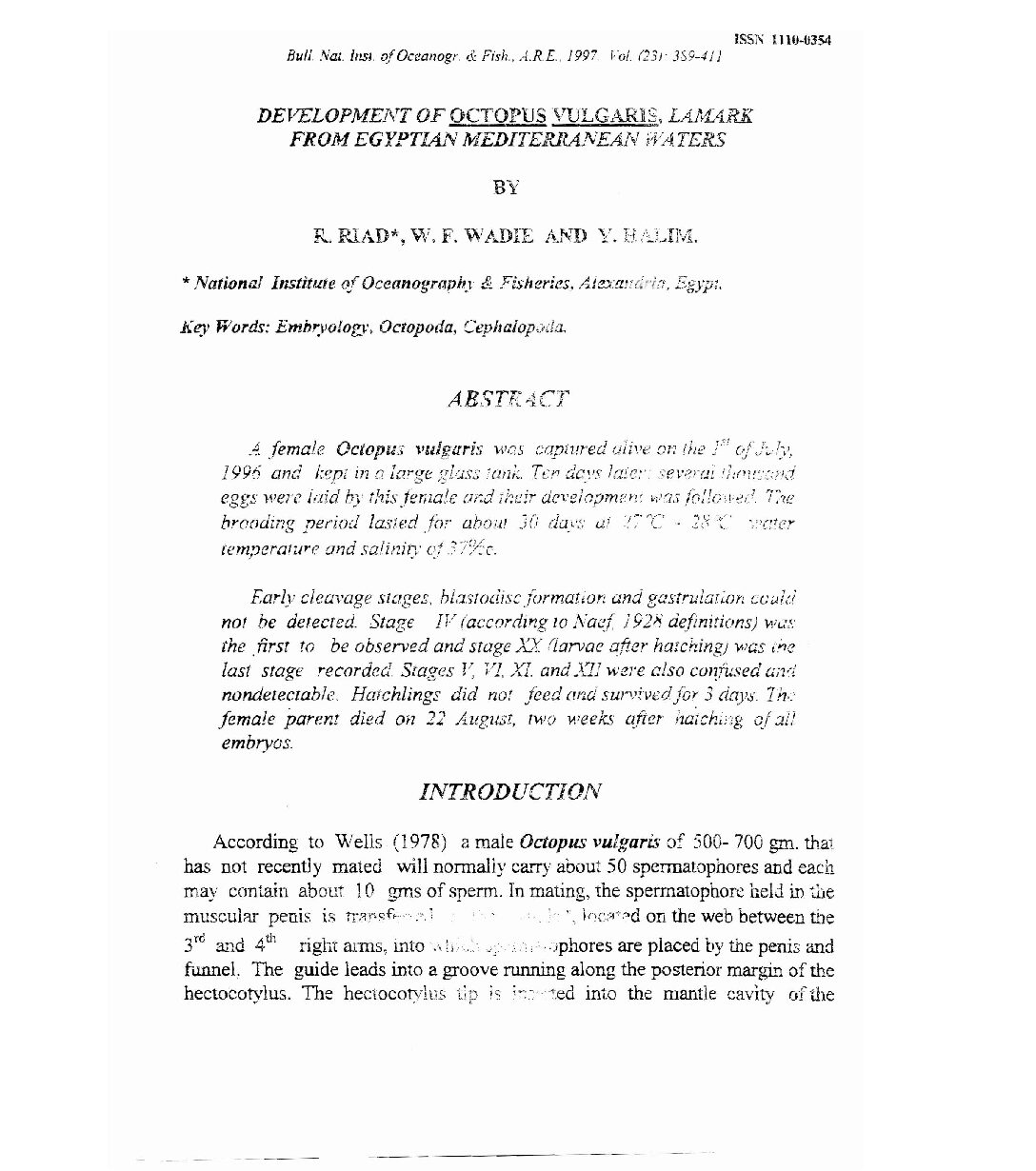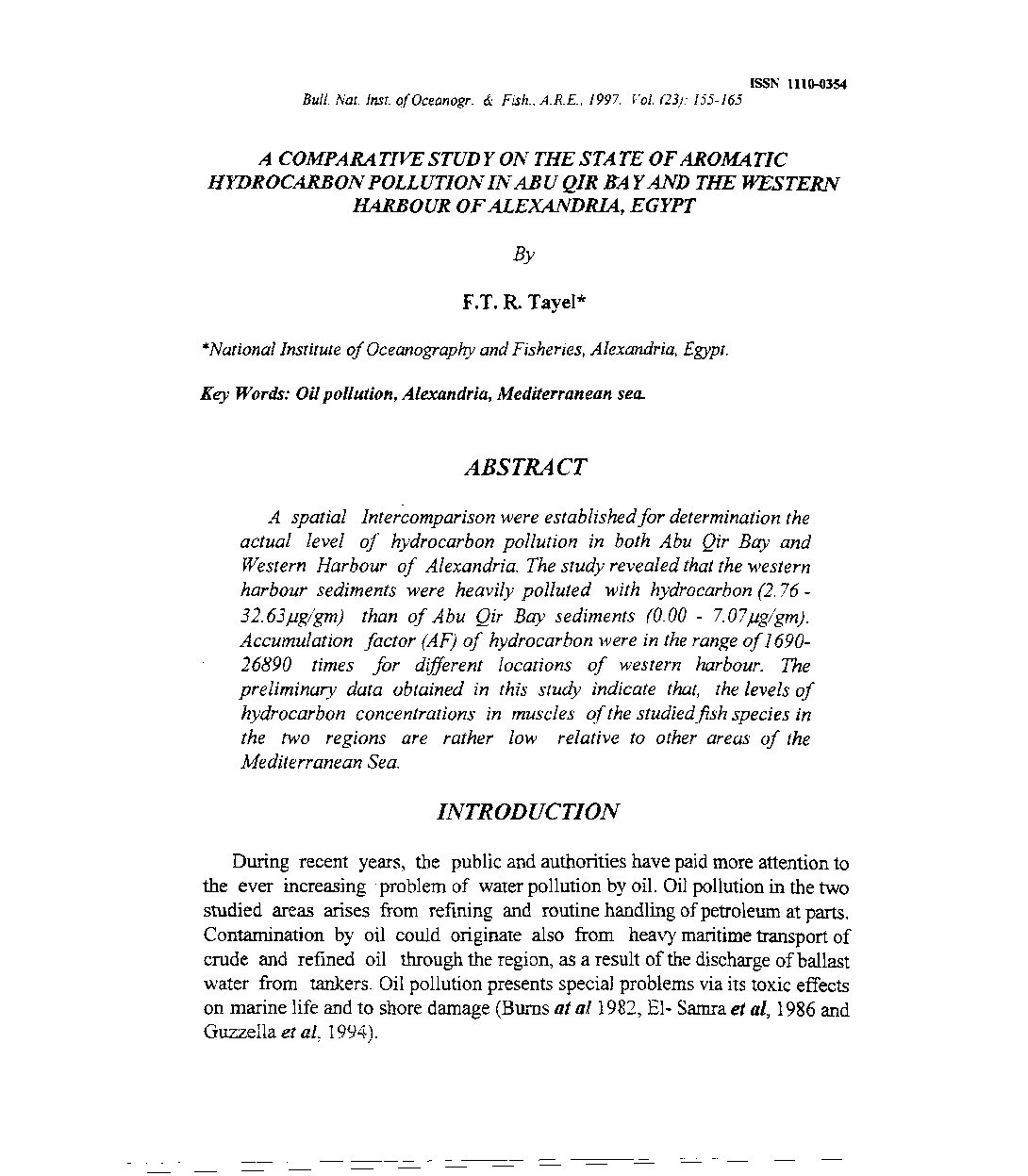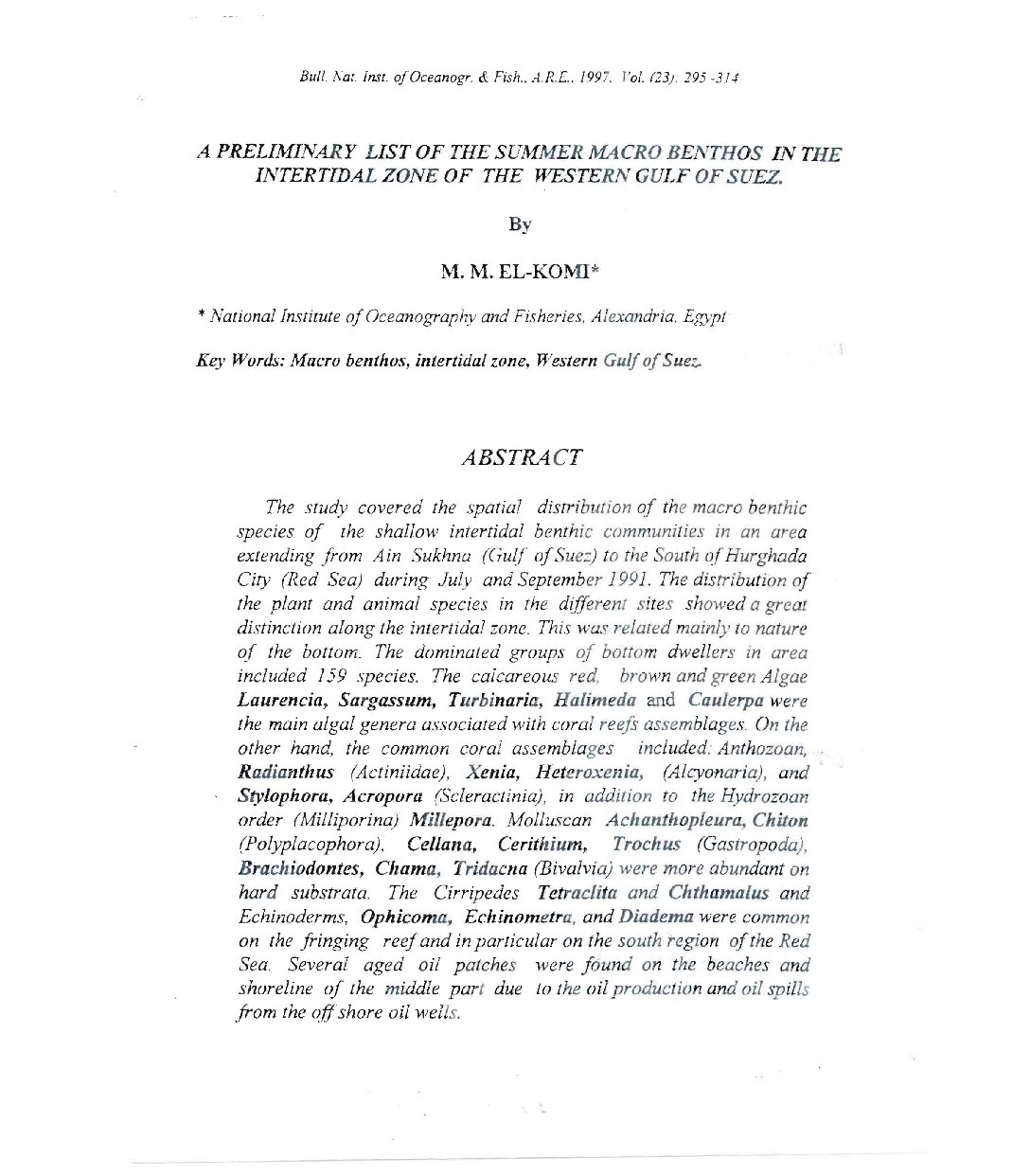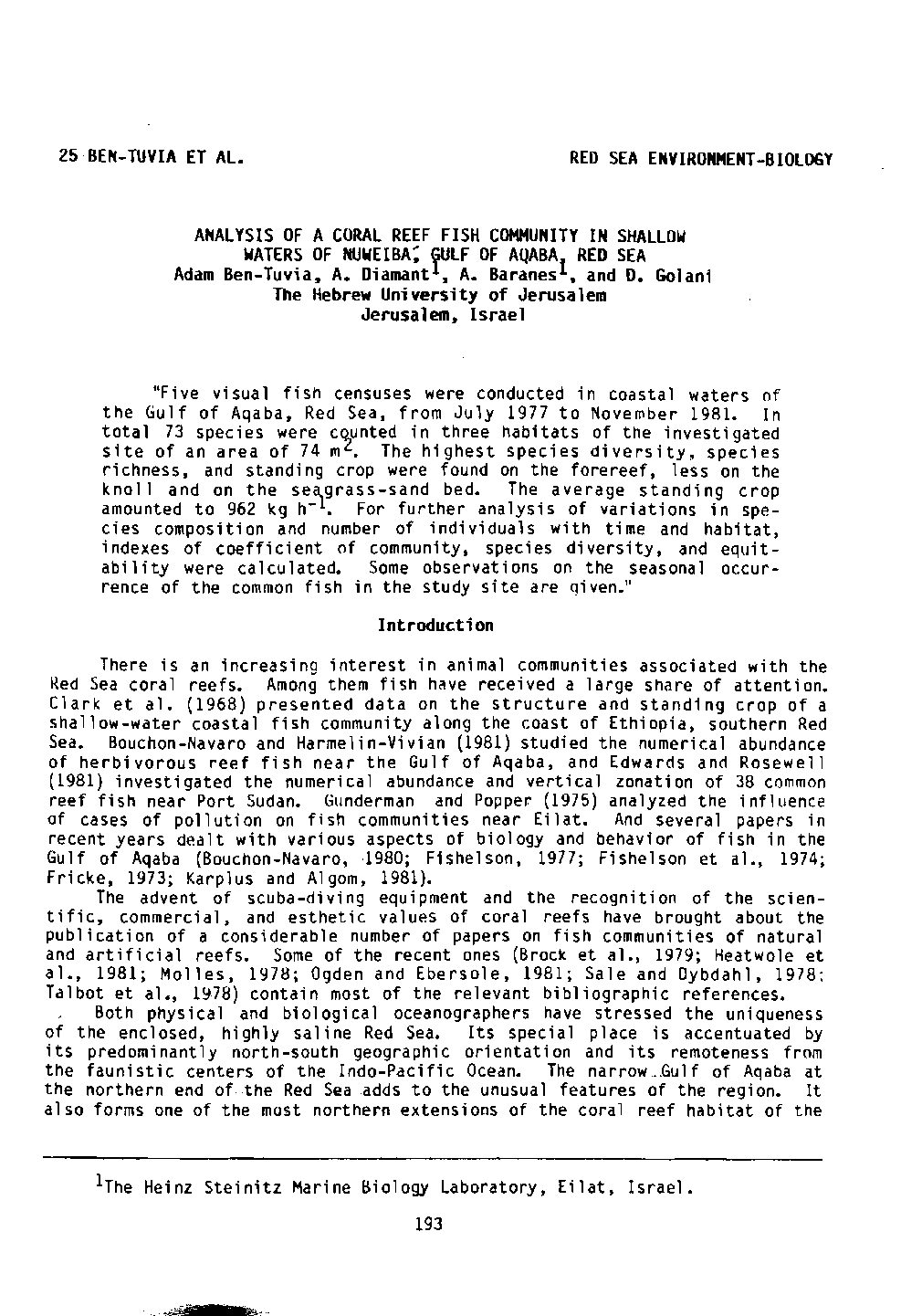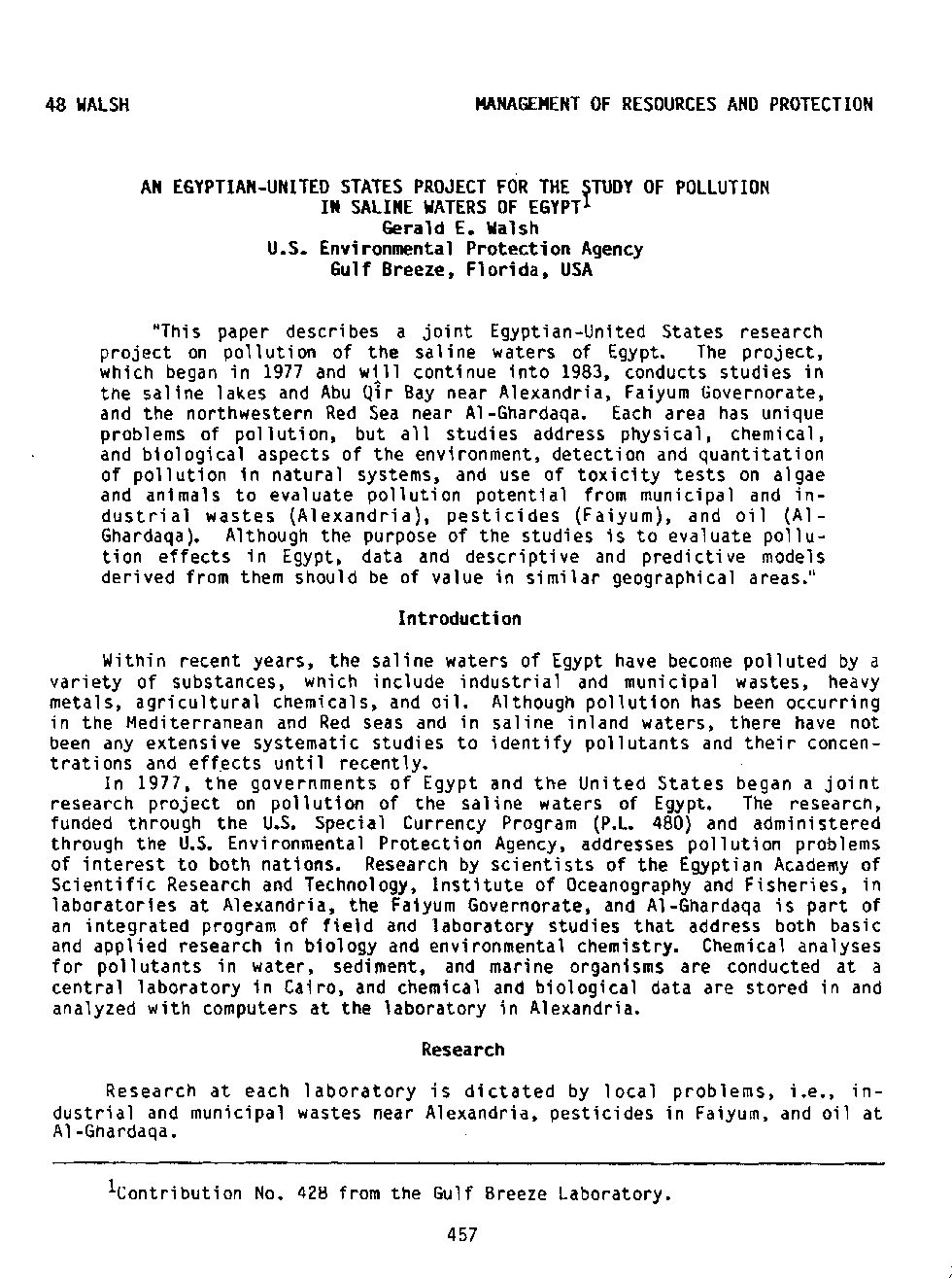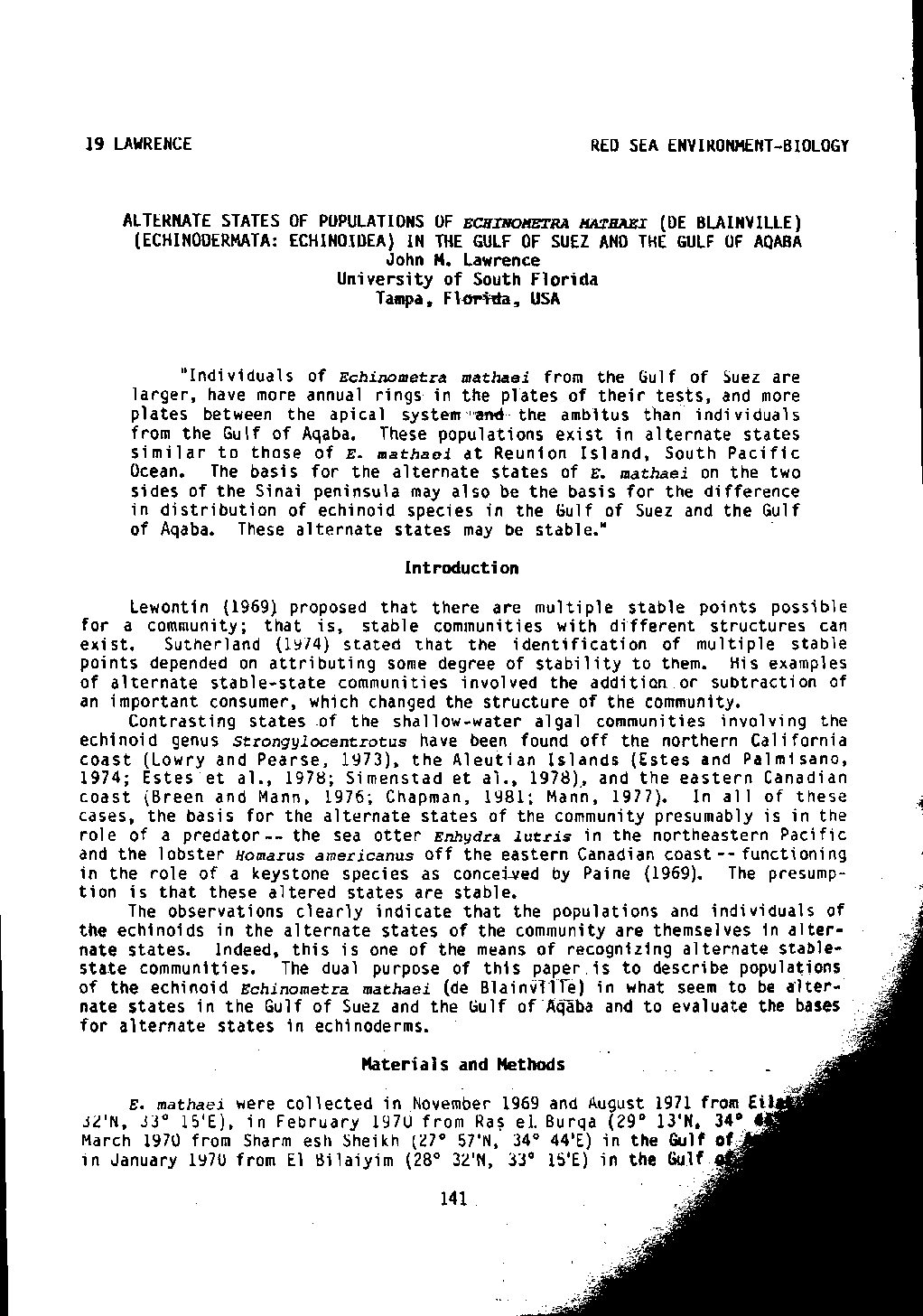Categories
vol-23DEVELOPMENT OF OCTOPUS VULGARIS, L4MAPJr
FROM EGYPTIAN lVIEDITEPJ?A.1VEAN WATERS
BY
R. RIAD*, \V, F. \VADIE AND Y. H/;J.”IM.
* ,National Illstitute ofOceanograDh.l &. Fisheries. Aiex([Hr/’-(rr, Egypt,
Ktry Words: Embryology, Octopoda, Cephaiopodi’L
AB ~T”” . ,,-.,-, . . -,) }’,- -“h. J
A female Octopus vulgaris W,;?S ;:aptured alive on ihe F1 CU(J~})’,
1996 and k’!p; in Q lm-ge g11S:; fOilk. Te.n dcys la;c~’ severai·;:(‘t~~,:;?”’.l’
eggs were [/lid hy rhtsfema!e and their dcvel()pme~!; iI,ias fol!c\!’eJ 7;>({!
brooding period lasted fo.” about 30 da.-“‘:.; wi r ”C- 28 ‘C ,,”cfer
“Om>~”‘rnlurp (:.. ‘j.J’- i… ,_ a’n,.l
, ……. ~,”all”?;!” “,_ … … ~. (\-1
~j .. ~-7{!/.., , ….. L.
Early cleavage stages, blastodisc formation and gastrular.ion c(Julci
not be detected. Stage IV (according £0 lvacf 1928 definitions) W115′
the .first to be observed and stage XX (larvae after hatching) was the
last stage recorded Stages r.~ VI. Xl. and Xl1 were also c01?fused Gwf
nondecectable. Hatchlings did nor feed {lnd survivedfor 3 days. 7h.:
female parent died on 22 August, two weeks c~fi-er hatchii,g o/ali
embryos.
